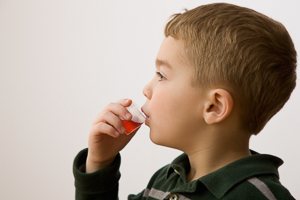acetaminophen use in young children
overview

acetaminophen, such as tylenol, helps reduce fever and relieve pain. it does not reduce inflammation, as do non-steroidal anti-inflammatory drugs (nsaids) such as ibuprofen, but it also is less likely to cause stomach upset and other side effects.
be sure to follow these medicine precautions.
- your child's over-the-counter medicine will have a "drug facts" label. on the label, you'll find directions for your child's age or weight, the dose to give, and how often to give the dose. if you give medicine to your baby, follow your doctor's or a pharmacist's advice about what amount to give. do not use acetaminophen if your child is allergic to it.
- acetaminophen can be found in many forms and comes in different doses. do not give your child more than the maximum dose recommended on the label.
- be careful when giving your child over-the-counter cold or flu medicines and acetaminophen (tylenol) at the same time. many of these medicines already contain acetaminophen. too much acetaminophen can be harmful.
- acetaminophen products include chewable tablets, syrup, and rectal suppositories. the correct dose and timing of the dose are important for the medicine to work well. always read the label so that you give the right dose based on your child's age and/or weight.
- be extra careful with liquid medicines. infants usually need a different dose than older children do. and some liquid forms are stronger (more concentrated) than others. always read the label so that you give the right dose.
- when you give medicine, use the tool that comes with the medicine, such as a dropper or a dosing cup. don't use a spoon instead of the tool. spoons can be different sizes. if the medicine doesn't come with a tool to give doses, ask your pharmacist for one.
- acetaminophen and ibuprofen are different products with different dosing recommendations. talk to your child's doctor or a pharmacist before switching back and forth between doses of acetaminophen and ibuprofen. when you switch between two medicines, there is a chance your child will get too much medicine.
side effects of acetaminophen are rare.
- nausea and rash are the most common.
- high doses of acetaminophen can contribute to liver and kidney damage.
do not give your child acetaminophen if he or she has liver disease.
related information
- chickenpox (varicella)
- circumcision
- crying, age 3 and younger
- ear infections
- ear problems and injuries, age 11 and younger
- fever or chills, age 11 and younger
- fifth disease
- head injury, age 3 and younger
- headaches
- hip injuries, age 11 and younger
- hip problems, age 11 and younger
- rash, age 11 and younger
- respiratory problems, age 11 and younger
- respiratory syncytial virus (rsv) infection
- teething
credits
current as of: september 25, 2023
author: healthwise staff
clinical review board
all healthwise education is reviewed by a team that includes physicians, nurses, advanced practitioners, registered dieticians, and other healthcare professionals.
current as of: september 25, 2023
author: healthwise staff
clinical review board
all healthwise education is reviewed by a team that includes physicians, nurses, advanced practitioners, registered dieticians, and other healthcare professionals.